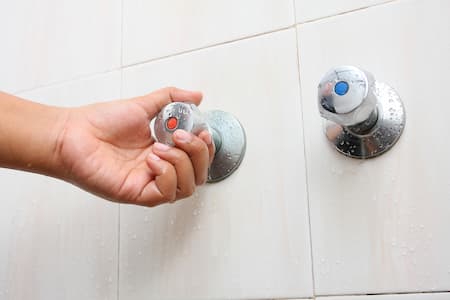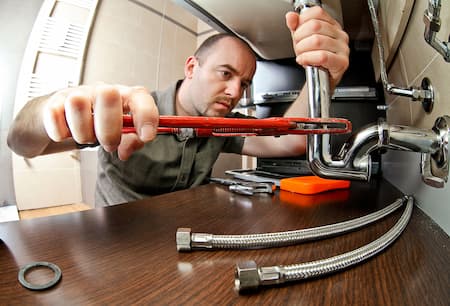What To Do If A Sewage Pipe Is Leaking?
Introduction
Picture this: You're enjoying a quiet evening at home, perhaps watching a movie or preparing dinner, when suddenly you notice an unpleasant smell wafting through the air. You investigate, only to find that your sewage pipe has sprung a leak. Panic sets in as you realize the potential damage and health risks associated with sewage leaks. What do you do? Don’t worry; you're not alone in feeling overwhelmed. In this comprehensive guide, we’ll walk you through the emergency steps to take when your sewage pipe starts leaking, ensuring you know how to manage the situation effectively.
Understanding Sewage Pipe Leaks
What Causes Sewage Pipe Leaks?
Sewage pipe leaks can be attributed to several factors, including:
- Corrosion: Over time, pipes can corrode due to chemical reactions with sewage.
- Tree Root Intrusion: Roots can penetrate sewer lines, causing cracks and leaks.
- Ground Movement: Shifting soil or ground movement can put pressure on pipes.
- Poor Installation: Improperly installed pipes are more prone to leaks.
Signs of a Leaking Sewage Pipe
Before diving into emergency steps, it's essential to recognize the indicators of a leak:
Emergency Steps to Take When Your Sewage Pipe Starts Leaking
Step 1: Identify the Source of the Leak
The first step is determining where the leak is coming from. Check all visible pipes and fittings for signs of moisture or corrosion.
Step 2: Turn Off Water Supply
Once you've identified the source, turn off the water supply immediately. This will help minimize further damage and reduce the risk of contamination.
Step 3: Contain the Leak
If safe to do so, place buckets or towels under the leak to catch any dripping sewage. Use plastic sheets if necessary to prevent further spreading.
Step 4: Wear Protective Gear
Safety should always come first! Equip yourself with gloves, goggles, and masks as sewage contains harmful bacteria that can lead to serious health issues.
Step 5: Clean Up Any Spillage
Carefully clean any spilled sewage using disinfectants specifically designed for biohazards. Dispose of any contaminated materials properly according to local regulations.
Step 6: Contact Professionals for Leak Repair
While DIY fixes might seem tempting, contacting professionals for leak repair is often the best course of action. Experts have specialized tools and knowledge needed for effective repairs.
Temporary Fixes You Can Try
Using Epoxy Putty for Minor Leaks
If you're dealing with a minor leak that needs immediate attention while waiting for professionals:

Duct Tape Solutions
In emergencies where you don’t have access to repair materials:
Long-Term Solutions for Sewage Pipe Issues
Regular Maintenance Checks
Regular inspections can help identify potential issues before they escalate into major problems:
- Schedule annual plumbing inspections.
- Look out for warning signs like slow drains or gurgling noises.
Consider Upgrading Pipes
If your home has old pipes made from clay or cast iron, consider upgrading them with modern PVC piping which is more durable and resistant to corrosion.
Health Risks Associated with Sewage Leaks
Sewage leaks pose serious health risks including:
- Gastrointestinal illnesses
- Respiratory problems
- Skin infections
- Exposure hazards from harmful bacteria and viruses
Taking quick action can mitigate these risks significantly.
Local Regulations Regarding Sewage Repairs
Most municipalities have specific codes regulating sewage repairs:
FAQs About Sewage Pipe Leaks
What Should I Do If I Smell Sewage in My Home?
First, locate any visible leaks and contain them if possible while turning off any water supply connected nearby before contacting a plumber.
How Can I Prevent Sewer Line Problems?
Regular maintenance checks and promptly addressing minor issues can help prevent larger problems down the line!

Are There DIY Methods To Repair Leaky Pipes?
While temporary fixes exist (like duct tape), professional assistance is recommended for permanent solutions due to complexities involved with plumbing systems.
What Is The Cost Of Professional Leak Repair?
Costs vary depending on severity but expect anywhere from $150-$500+ based on factors like location and extent of damage!
How Long Does It Take To Repair A Sewer Leak?
Repairs can typically range anywhere from a few hours up to several days based upon complexity involved in fixing underlying issues!
Should I Contact My Insurance Provider After A Leak?
Definitely! Many homeowners' insurance policies cover damages caused by sewer backups—be sure to document everything thoroughly!
Conclusion
Dealing with a leaking sewage pipe can be daunting; however, knowing what steps you need to take during such emergencies equips you better handle these situations when they arise! Always remember that contacting professionals is often necessary—when it comes down it safety must prevail over convenience! By following this guide on "Emergency Steps To Take When Your Sewage Pipe Starts Leaking," you'll be well-prepared should disaster strike again!
effective drain cleaning methodsThis robust article provides thorough guidance along with practical steps regarding handling sewage pipe leaks effectively while maintaining safety standards throughout repair processes—which ultimately leads toward healthier living environments!